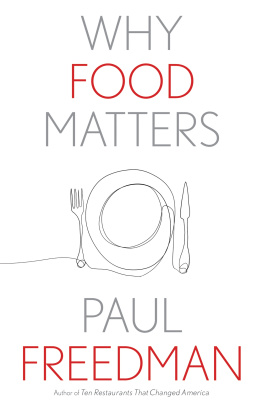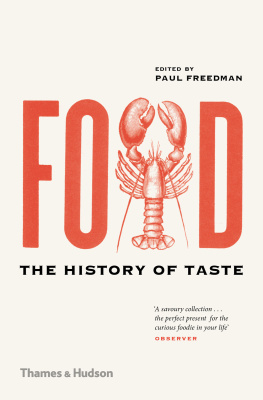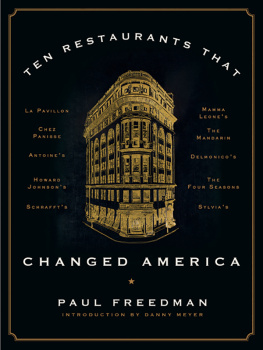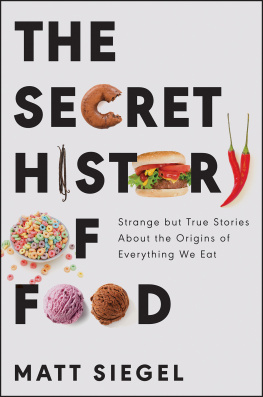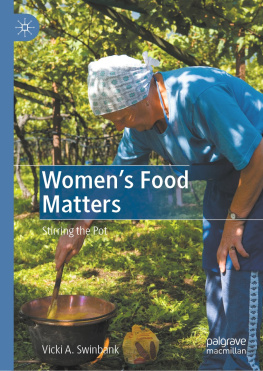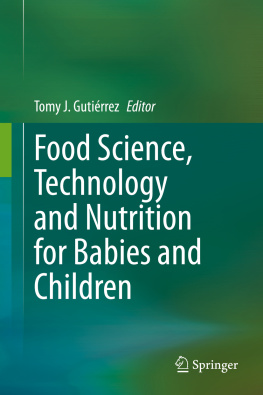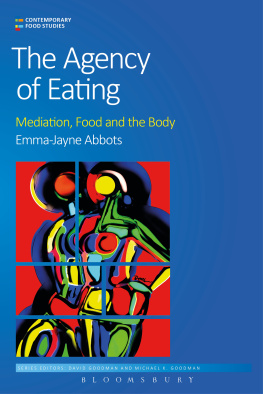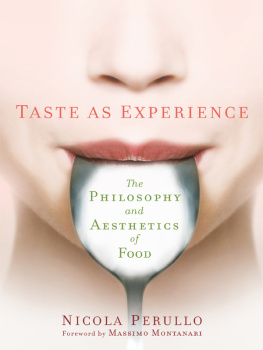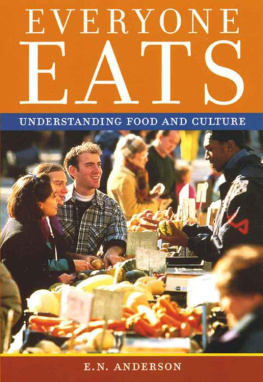why food matters
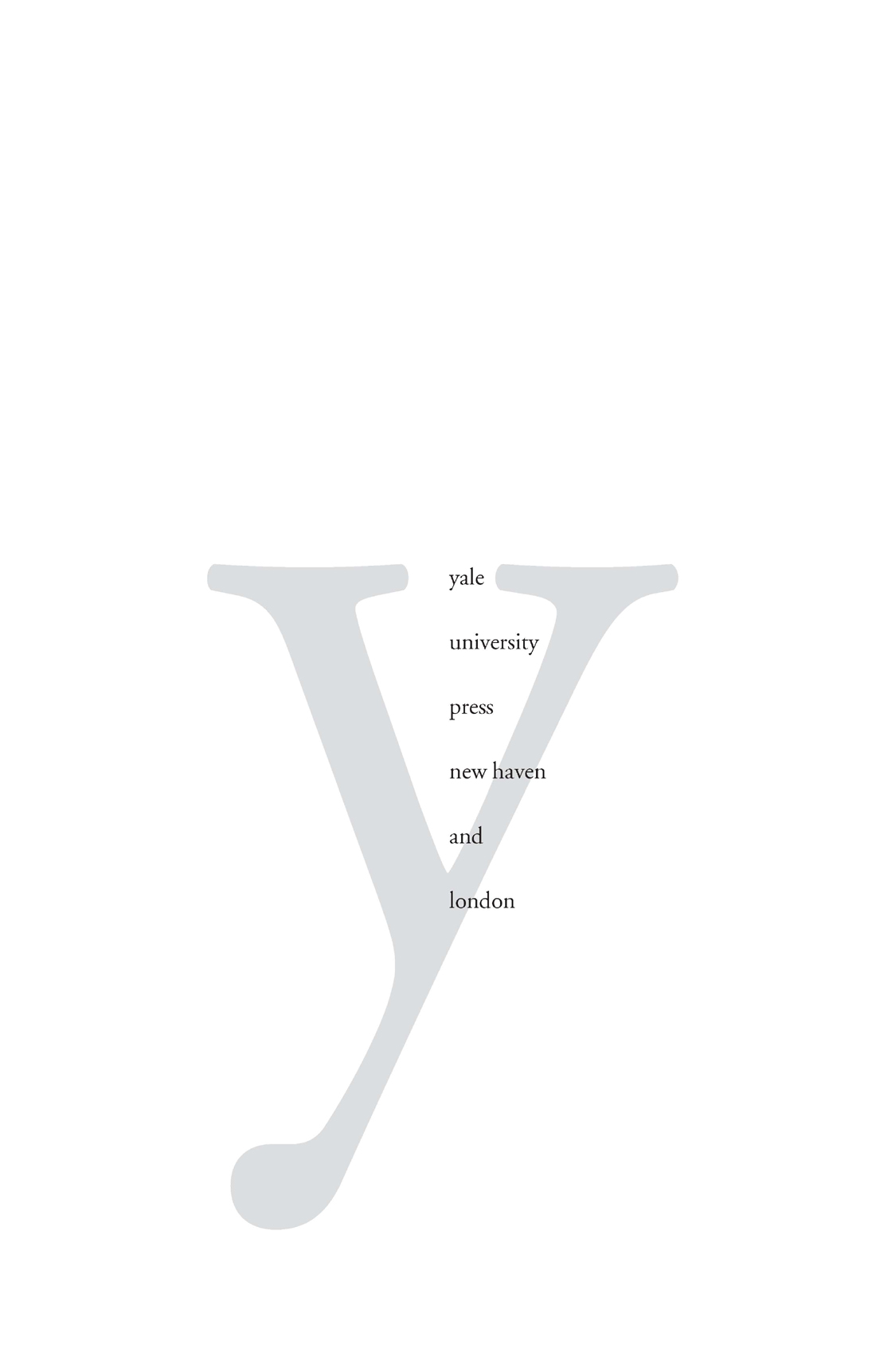

Published with assistance from the Louis Stern Memorial Fund.
Why X Matters is a registered trademark of Yale University.
Copyright 2021 by Paul Freedman.
All rights reserved. This book may not be reproduced, in whole or in part, including illustrations, in any form (beyond that copying permitted by Sections 107 and 108 of the U.S. Copyright Law and except by reviewers for the public press), without written permission from the publishers.
Yale University Press books may be purchased in quantity for educational, business, or promotional use. For information, please e-mail (U.K. office).
Set in Adobe Garamond type by IDS Infotech Ltd.
Printed in the United States of America.
ISBN 978-0-300-25377-1 (hardcover : alk. paper)
Library of Congress Control Number: 2021933253
A catalogue record for this book is available from the British Library.
This paper meets the requirements of ANSI/NISO
Z39.48-1992 (Permanence of Paper).
10 9 8 7 6 5 4 3 2 1
previous works by paul freedman include:
American Cuisine and How It Got This Way (2019)
Ten Restaurants That Changed America (2016)
Out of the East: Spices and the Medieval Imagination (2008)
In memory of Cecilia Chiang, 19202020
contents
introduction
And also that every man should eat and drink, and enjoy the good of all his labor.
ECCLESIASTES 3:13
Unlike the subjects of other books in this series, food matters because it is necessary for survival. Beyond this fundamental importance, or even because of it, the cultural meaning of foodthat it conditions how we see the world and ourselvesis less clear. There is an enduring tradition in Western thought that apart from its obvious biological significance, food does not matter, that it is not an intellectual subject. Eating sustains us and while it is reassuring to expect regular meals, food is essentially fuel and not worth further consideration. In David Mamets play Glengarry Glen Ross (1984) the shady real-estate salesman Richard Roma utters a common opinion: who cares about meals that are over and done with? Cause its only food. The shit we put in keeps us going. Its only food. The argument of this book is that what people eat does matter for the formation of identity, the preservation of health, the perception of others, and the future of the natural world.
That food does not matter is both a popular and an intellectual opinion. Learned skepticism about food as a serious topic is exemplified by the sixteenth-century essayist Michel de Montaigne who set down what he regarded as an amusing conversation with a chef who seemed to regard his menial job with inappropriate gravity. The Italian cook, brought to France by Montaignes patron Cardinal Giovanni Caraffa, lectured the philosopher on what he referred to pompously as the science of eating, affecting a grave and magisterial countenance, as if he were discussing grand points of theology. Montaigne found it laughable that a mere artisan of the kitchen could describe salads and roasts as if it they merited high seriousness, his discourse bloated with grand and magnificent words such as one might use in describing the government of an Empire.
Four hundred years after Montaignes remarks, the distinguished chef Jacques Ppin in his memoirs recollects another dismissal of cuisine as a worthy subject of inquiry, in this case pronounced by a professor of French literature. Having received his BA degree in 1970 from Columbia University, Ppin was admitted to graduate school there and for his doctoral dissertation he proposed to write about food in French literature. His adviser contemptuously assured him that the theme, while certainly novel, was out of the question: The reason not much has been written on the topic, Mr. Ppin, is that cuisine is not a serious art form. It is far too trivial for academic study. Not intellectual enough to form the basis of a Ph.D. thesis.
No one would dispute the utility of agronomy, physiology, and other science disciplines related to efficient cultivation or physical health, but within Europe and North America, cuisine has not been considered comparable to performing arts such as opera, let alone university disciplines such as philosophy. Recipes and dining out attract popular interest and discussion, but so do many other diversions that do not merit academic attention, from fashion to hang-gliding.
One problem with taking food seriously is that eating is a routine act providing only short-lived satiety; one meal has hardly been finished when the next has to be prepared. Yet just because something is ephemeral does not inevitably make it trivial. After all, before the advent of recording technology, the aesthetic experience of music was fleeting, yet the subject was always regarded in learned circles as a noble endeavor. Beginning in the early Middle Ages, music was a foundational discipline, one of the seven liberal arts. Music has the advantage that its effects are immaterial, spiritual, and in some sense inexplicable. Materiality, necessity, and repetition contribute to the apparent banality of food. Nothing is more implicated in the material world than eating. Ingestion is a quotidian, bodily need, physically urgent, but seemingly not worth extensive discussion any more than is the case for the equally imperious drives for sleep or urination. Many activities are biologically important but uninteresting to humanistically oriented scholars.
And yet, notwithstanding popular and cultivated dismissal, food has meaning beyond its routine aspects, and is important in forming memories and constituting a sense of who we are. Most people retain exactly and fondly the delightful taste and ambience of meals past. Ppins professor notwithstanding, literary authors do write about food, and certain instances, such as Prousts madeleine, are renowned. Far from fading away, enjoyment endures in our minds as entrancing and comforting recollections.
The Covid-19 pandemic accentuated the power of food both to evoke loss and to preserve sanity. During the periods of restrictions, formerly common pleasures such as restaurant dining were remembered with all the more affection because they used to occur repeatedly. In addition, such meals were missed because, as Proust also noted, the only true paradises are those we have lost. Writing from what amounted to exile in Taiwan, the writer Tang Lusun (19081985) ended the introduction to a book entitled Recalling Homeland (Guyuan qing) with the hope that: If food talk can elicit ones memory of the homeland and then inspire his ambition of recovering the native soil, then I have not written in vain these many years.
Exile, migration, and confinement reinforce the symbolic significance of food. An incomparably agonizing example of the power of food and memory is a cookbook put together by Jewish women imprisoned in the Theresienstadt concentration camp (Terezn, Czech Republic) during the Nazi tyranny. Of course, no one arrived at the camp with a collection of home recipes, and it would not have been possible to find or prepare the dishes remembered for the cookbook while in a situation of near starvation. As recounted in the book In Memorys Kitchen by Cara De Silva, the recipes were based on the womens recollections of the comforting, everyday food of home. These inmates were supposedly privileged (the Germans referred to them as Prominenten), kept at what was falsely presented to the world as a model Jewish settlement, as conveyed via a grotesque propaganda film in 1944 titled
Next page
